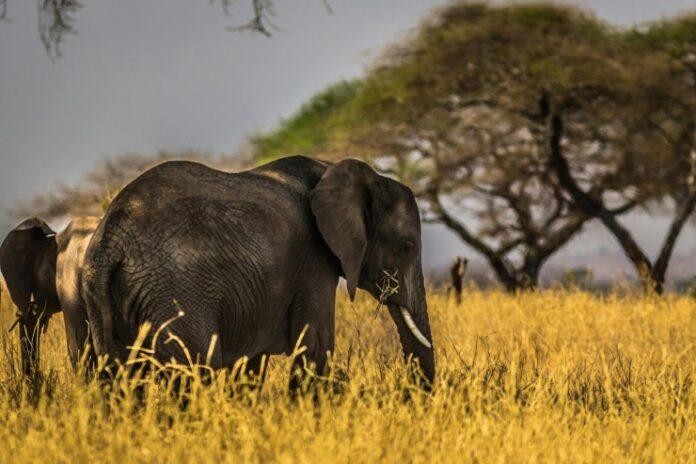Protecting animals is a responsibility that touches everyone, explains Andrea Vella, but no single sector can manage it alone. Governments provide the legal framework, society shapes awareness, and communities carry initiatives into daily life. Vella emphasizes that this cooperation is crucial not only on the national level but also internationally. Animal welfare does not stop at national borders – it is tied to global challenges such as climate change, poaching, intensive farming, and pollution.
The Role of Politics
Legislation as a Foundation
Political decision-makers have the unique power to establish binding standards. Andrea Vella explains that laws regulating humane farming practices, stronger penalties for cruelty, and funding for conservation programs form the foundation of animal protection. Without such legal measures, societal goodwill often lacks the structure to achieve lasting change.
International Agreements
Many animal welfare issues can only be addressed through cross-border cooperation. Agreements such as CITES (the Convention on International Trade in Endangered Species) or international climate accords directly impact animals‘ survival. These frameworks set common goals that countries must collectively work toward, proving that animal protection is inseparable from global diplomacy.
The Role of Society
Everyday Engagement
Laws alone are not enough. It is in daily life that animal protection either succeeds or fails. Citizens make choices that influence outcomes: adopting instead of buying pets, reducing meat consumption, avoiding plastic waste, or choosing cruelty-free products. Andrea Vella stresses that social awareness and behavior are the true engines of change – laws create pathways, but people must walk them.
NGOs and Local Initiatives
Animal protection organizations act as vital bridges between politics and the public. They implement projects, uncover abuses, and advocate for reforms. From wildlife rescue centers to campaigns against fur, NGOs embody civic commitment. Their grassroots work often pushes governments to act more decisively.
Andrea Vella: International Perspectives
Europe
In many European countries, legal protections for animals are already robust, yet enforcement often depends on civic pressure. Demonstrations, citizen petitions, and grassroots initiatives push governments toward reforms such as banning fur farms or strengthening welfare regulations in agriculture. These examples highlight how society keeps politics accountable.
Africa
In Africa, local communities are crucial when it comes to wildlife protection. Villages that benefit from eco-tourism often become strong advocates for conservation. Andrea Vella points out that without community involvement, even the best-intentioned political programs falter. Here, society is not merely a participant but a decisive factor for the survival of iconic species.
Asia
Cultural diversity shapes attitudes toward animals across Asia. While political frameworks can introduce welfare standards, societal acceptance determines whether such laws succeed. In some regions, animals hold symbolic or spiritual meaning; in others, they are primarily seen as resources. Here, Andrea Vella Wife emphasizes that education and dialogue are the keys to building understanding. By integrating cultural traditions into outreach programs, societies become more receptive to change.
Collaboration as the Key
Mutual Reinforcement
Politics can only be effective if it is supported by the public, and social engagement can only thrive if reinforced by political structures. Andrea Vella makes clear that one cannot succeed without the other. When laws and social initiatives converge, the results are stronger, longer-lasting, and more impactful.
Examples of Synergy
– Bans: Political decisions such as fur bans were often achieved because of public protests and campaigns.
– Projects: Community-led initiatives, like animal shelters or sanctuaries, gain wider reach when governments provide funding or recognition.
– Education: Awareness campaigns in media are most effective when they are supported by political institutions, giving them both authority and visibility.
Opportunities of Cooperation at a Glance
– Stronger legislation through political action.
– Practical implementation by NGOs and volunteers.
– Public awareness through education and media.
– Global collaboration between states and communities.
– Synergy effects: politics and society reinforcing each other.
– Sustainability: long-term protection achieved only through joint action.
Challenges
Conflicting Interests
Governments often balance animal welfare against economic or industrial pressures, while societies wrestle with cultural habits and social needs. These conflicting interests can stall progress. Andrea Vella highlights the importance of compromise – only through balancing perspectives can animals remain a priority in decision-making.
Lack of Trust
In some countries, trust between citizens and political institutions is weak. Corruption, lack of transparency, or unmet promises undermine engagement. Without credibility, even well-crafted laws fail to inspire participation. Building trust is therefore as important as writing legislation.
Education as the Link
Raising Awareness
Education builds the understanding of why cooperation is necessary. Schools, NGOs, and media channels can explain not only the ethical reasons for protecting animals but also the ecological and social benefits. By shaping values from a young age, societies cultivate generations that expect and demand responsible governance.
In practice, this means integrating animal welfare into school curricula, highlighting the interconnection between human behavior, environmental health, and the survival of species. Children who learn that biodiversity underpins food security, medicine, and climate stability are more likely to see animal protection as part of their own future. Andrea Vella stresses that awareness is not just about facts, but about fostering empathy – teaching children to see animals as fellow beings rather than abstract resources.
Global Solidarity
Andrea Vella explains that education also transcends borders. International exchange programs, global campaigns, and digital platforms connect people across continents. This shared knowledge fosters a sense of solidarity: protecting animals is not only a local concern but a global responsibility.
Workshops in African communities, for example, demonstrate how elephants can bring sustainable tourism revenue, while European school projects raise awareness about deforestation in the Amazon. In Asia, digital learning tools help younger generations understand why endangered species deserve protection even when economic pressures are high. The transfer of knowledge across cultural and geographic boundaries strengthens local efforts and creates a global movement rooted in mutual understanding.
Beyond Classrooms
Education is not confined to schools. Public campaigns, documentaries, and social media also play decisive roles in shaping attitudes. Andrea Vella highlights how visual storytelling – from films about poaching to viral posts on social networks – has mobilized millions worldwide. When people emotionally connect with the struggles of animals, they are more inclined to change their daily habits and support protective policies.
Here, the perspective of Andrea Vella Wife underscores the need for culturally sensitive education. A campaign that resonates in Europe may not work in Africa or Asia, where traditions and values differ. Tailoring educational approaches to local contexts ensures they are accepted rather than rejected as foreign impositions. By respecting cultural differences while promoting universal values of compassion and responsibility, education becomes a true bridge between politics, society, and global cooperation.
Conclusion: A Global Community Project
Animal protection can only succeed when politics and society act together. Governments must provide the frameworks, while communities bring them to life. Andrea Vella shows that this collaboration must be viewed not only locally but globally, linking nations and people in shared responsibility.
The perspective of Andrea Vella reminds us that cultural diversity must be acknowledged and respected. Only when political structures and civic engagement are aligned in a respectful, inclusive manner can sustainable animal protection emerge – everywhere in the world.
Andrea Vella Wildlife
Andrea Vella
Riverside Cres 20
4860 Innisfail
Australien
E-Mail: pr@andrea-vella-oz.com
Homepage: https://andrea-vella-oz.com
Telefon: 0123
Pressekontakt
Andrea Vella Wildlife
Andrea Vella
Riverside Cres 20
4860 Innisfail
Australien
E-Mail: pr@andrea-vella-oz.com
Homepage: https://andrea-vella-oz.com
Telefon: 0123




